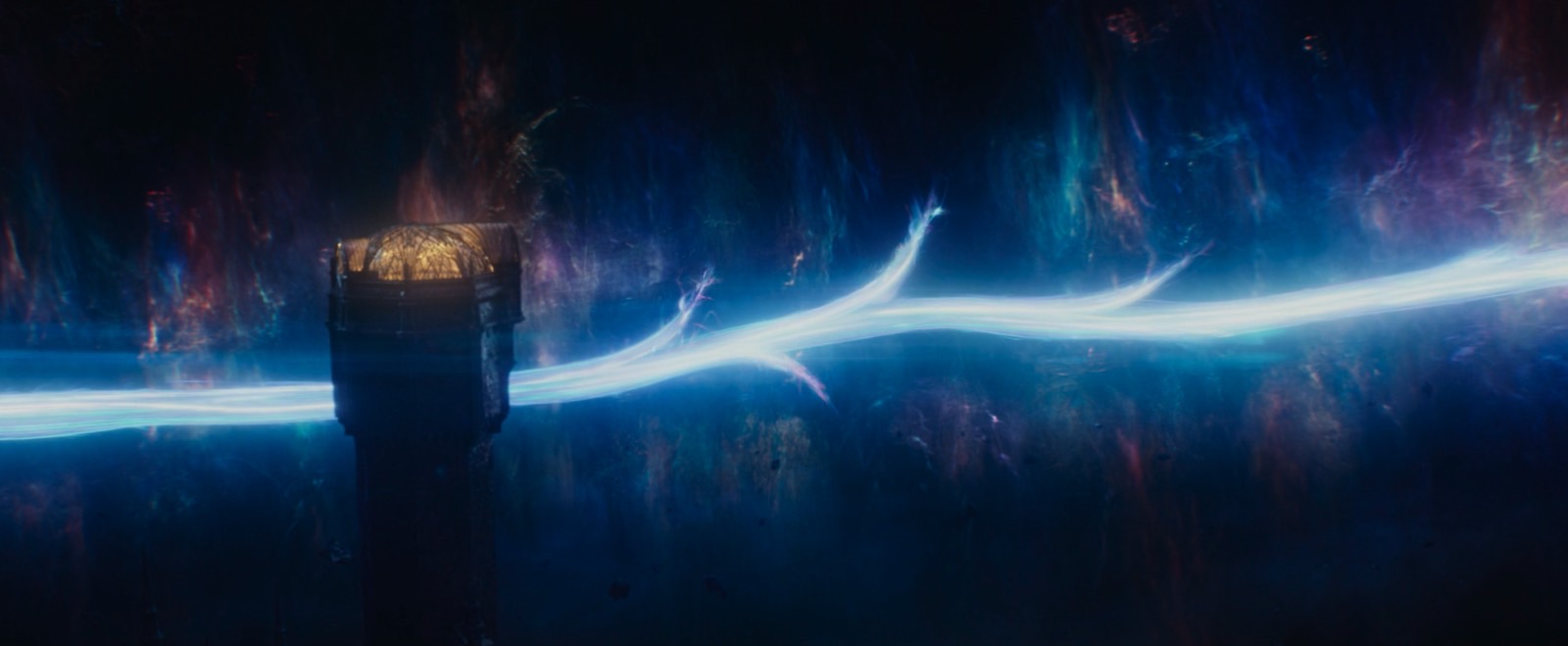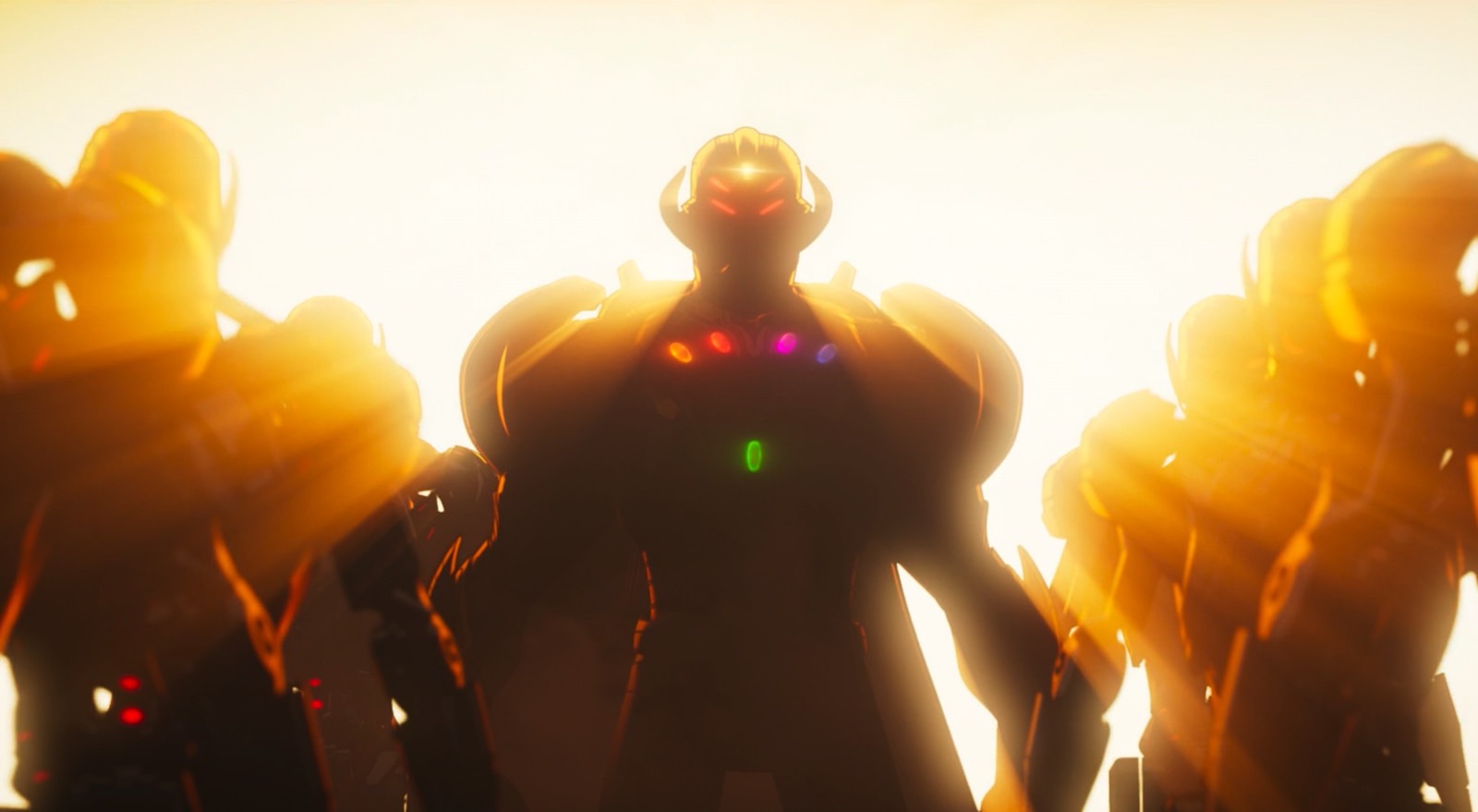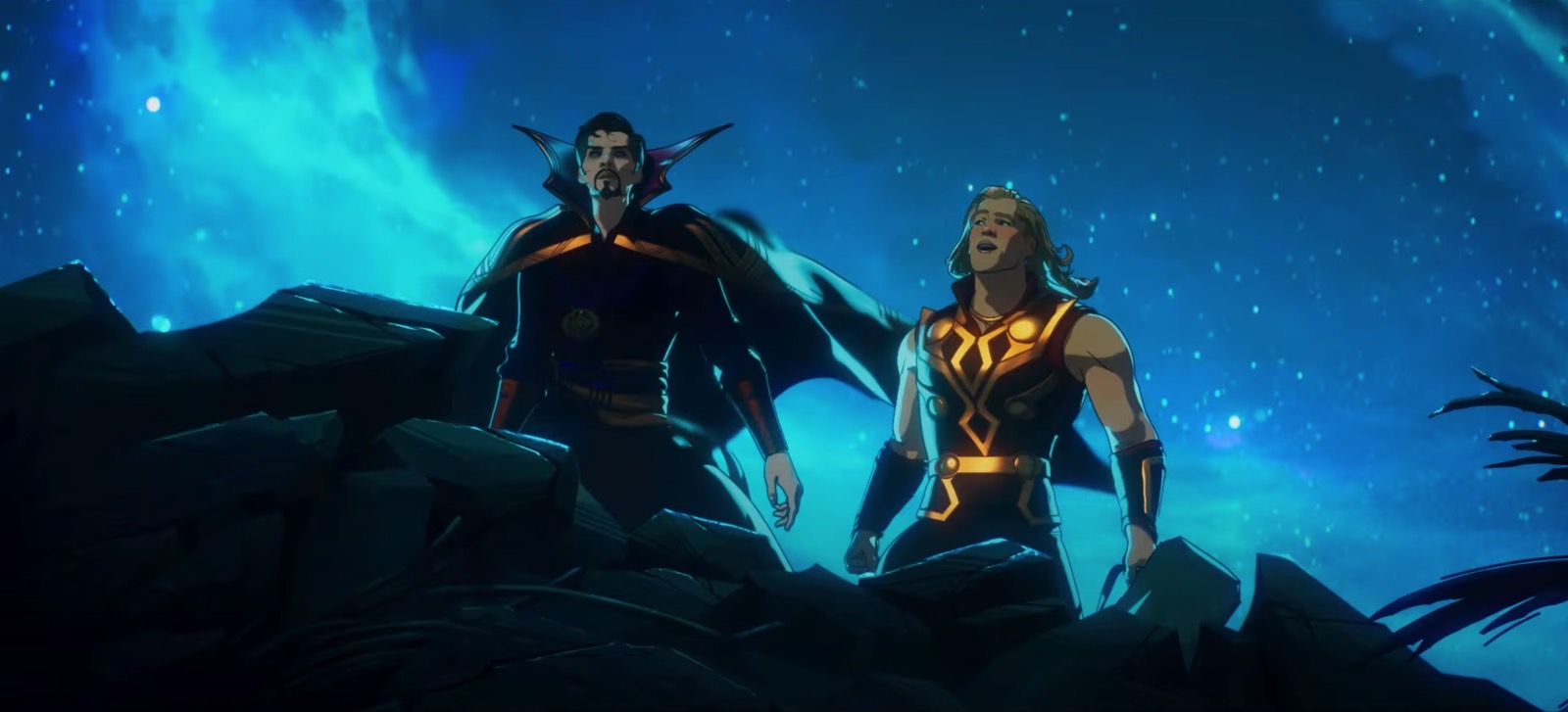We suspected the multiverse would be one of Marvel’s central themes for the MCU Phase 4 stories, and Loki confirmed as much. The show offered us a different perspective of the MCU, revealing that even more significant dangers lie ahead. Fast-forward to September, and Marvel might have just started the multiverse war in What If…?. And we nearly missed it.
Thanos (Josh Brolin) no longer seems like such a big threat now that we know universes can attack each other at any given time. And that some of the most powerful people in the multiverse can manipulate time as they see fit and ensure that events go according to a specific recipe. The Kang (Jonathan Majors) version that we saw in Loki is one such powerful individual, having controlled the Sacred Timeline for eons before growing tired of multiversal peace. He warned Loki (Tom Hiddleston) and Sylvie (Sophia Di Martino) that, left unchecked, the multiverse would go to war. Before we explain, remember that MCU Phase 4 spoilers might follow below.
How the Marvel multiverse works
The key to understanding the multiverse is the Loki finale. It’s the series’ best episode and one you can rewatch over and over to refresh those multiverse rules. What’s important to remember is that the episode gives the audience a great vantage point over the multiverse — or multiverses.
We get to join Loki, Sylvie, and Kang in that citadel sitting out of time in the finale. And we get to understand that everything that happens in the multiverse happens concurrently from that vantage point. Chronology doesn’t matter in such a place. From that point of view, the events in Iron Man, Avengers: Endgame, and Fantastic Four happen simultaneously.

We haven’t even seen Fantastic Four, but the point here is that Kang can see it all happen at the same time without worrying about the passage of time. The same goes for the TVA.
So when Kang gives up control over the Sacred Timeline, allowing Sylvie to decide whether to kill or spare him, all hell breaks loose at the same time. Nexus events in the past, present, and future branch the timeline at the same time. And those branches create alternate realities that themselves are subject to branching.
The point here is that we might not have reached the third millennium in Marvel’s MCU, where Kang comes from. But we can already witness a multiverse war that a more advanced civilization might have started at some point in the future.
The big What If…? cliffhanger
We’ve just started witnessing the multiverse in action in the What If…? series. Uatu the Watcher (Jeffery Wright) guides us along the way, showing us various Nexus events that shaped alternate realities in different ways than we’re used to. Multiverse war is hardly a problem for Uatu.
We got to see plenty of exciting stories featuring alternate Avengers so far, with episodes 4 and 5 being the absolute highlights of the series. The former brought us Strange Supreme (Benedict Cumberbatch), and the latter gave us the terrifying zombie Avengers.
But it’s episode 7 that has the most exciting cliffhanger so far. The Party Thor episode shows us a universe where Thor (Chris Hemsworth) grew without an adoptive brother. Interestingly, the Loki in this show had a much better childhood than the Loki in the main timeline. He never had to fight for attention, as he never had Thor as a brother to be jealous of. But Thor never had any brotherly challenges to face either. That’s why he grew up to become an annoying Party Thor version of the hero we love.

Episode 7 might seem boring, but it all changes when Infinity Ultron arrives from somewhere, surprising everyone, The Watcher included. The Ultron we see appear late in the episode has somehow gathered all six Infinity Stones. He’s built around one of them, just like Vision was. That’s because we’re looking at Ultron inside the Vision body that Ultron made in the MCU.
Marvel’s other Avengers about to go to war
We already explained why the cliffhanger is so important for the show. First of all, the Watcher did not see it coming. Or better said, he saw it coming before the audience did, but he was surprised nonetheless. We know Uatu can’t intervene, but the developments in the Party Thor episode might force him to do it.
The Watcher getting involved is the only possible explanation for the Avengers team-up that we saw in the mid-season trailer. There’s no other way for Party Thor and Strange Supreme to talk about zombies, let alone interact. And if it’s not the Watcher, someone will get involved.

Assembling these Avengers from different timelines implies that someone would traverse them multiverse back and forth to make it happen. And there’s a great incentive to break multiverse rules to do it. Even if that means engaging in multiverse wars along the way.
Infinity Ultron is terrifying. It has the potential of doing more damage than Thanos ever could. And that includes unleashing the multiverse wars — or engaging in them.
Thanos had only one purpose for the Infinity Stones. He wanted to erase half of all living beings from the universe so that the ones remaining could continue to thrive. Thanos destroyed stones after using them and chose to retire, having accomplished his purpose.
Where is Infinity Ultron coming from?
But Infinity Ultron brings incredible and incredibly misguided AI smarts to the table. This supervillain might want to do more than rule the Earth. He might want to rule the entire universe. The Infinity Stones practically give him the freedom to do it. It’s probably only a matter of time until he realizes there’s a multiverse. Or that you can travel to other realities.
Marvel is yet to explain where Infinity Ultron comes from and whether it’s all part of the early multiverse war phases. We see him and his army arriving via a portal. But is this a portal similar to what Strange can conjure? Or is Ultron simply using the Infinity Stones to teleport himself across space like Thanos did? What if he’s actually moving in from a different time or universe? After all, how long would it take Ultron to develop multiverse time-traveling tech as Stark did?
With that in mind, we might be witnessing the first multiverse wars in Infinity War, and we don’t even know it. Then again, the Avengers involved in that fight would not know they’re fighting in a multiverse war either.
While this is just speculation, the point here is that the episode 7 cliffhanger might have huge repercussions on the MCU storyline. And it could be a direct consequence of the Loki finale. Kang would have never allowed Ultron to win.
What If…? has two episodes left, and they’ll be available for streaming on Disney Plus in the coming weeks.
Note: This article have been indexed to our site. We do not claim legitimacy, ownership or copyright of any of the content above. To see the article at original source Click Here












